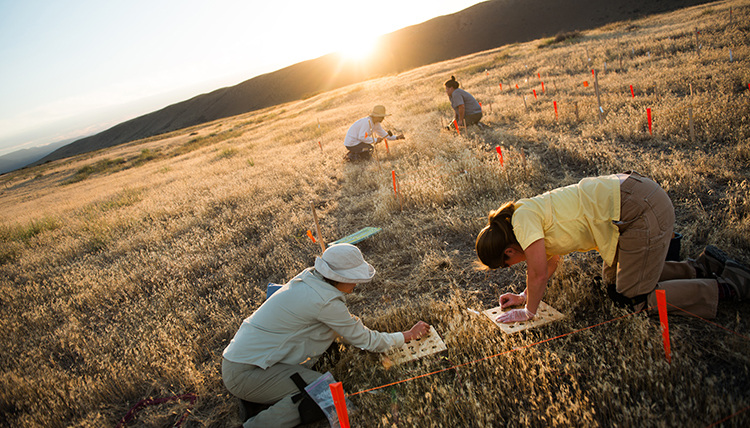Environmental Research and Studies

Our Environmental Research and Studies service is dedicated to advancing scientific knowledge and understanding of various environmental issues, promoting evidence-based decision-making, and providing actionable insights for sustainable solutions. Through rigorous research, data analysis, and comprehensive studies, we contribute to the development of strategies, policies, and practices that address critical environmental challenges.
Key Components of our Environmental Research and Studies:
1. Baseline Studies: We conduct baseline studies to establish a clear understanding of the current environmental conditions, including factors such as air quality, water quality, biodiversity, and land use.
2. Impact Assessments: Our experts assess the potential environmental impacts of various projects, policies, and activities, ensuring that they align with sustainability goals and regulatory requirements.
3. Climate Change Research: We analyze climate trends, model future scenarios, and evaluate the potential impacts of climate change on ecosystems, communities, and infrastructure.
4. Biodiversity and Habitat Studies: Our research focuses on the conservation of biodiversity, including species assessments, habitat mapping, and ecological studies to inform protection and restoration efforts.
5. Water Resource Management: We study water availability, quality, and usage patterns, contributing to effective water resource management and sustainable water conservation strategies.
6. Waste Management Analysis: Our studies evaluate waste generation, disposal practices, and potential recycling opportunities, informing waste management policies and initiatives.
7. Air Quality Monitoring: We measure air pollutants, analyze air quality data, and assess the health and environmental implications of air pollution.
8. Renewable Energy Feasibility: Our research explores the feasibility and potential benefits of adopting renewable energy sources, such as solar, wind, and hydroelectric power.
9. Ecosystem Services Assessment: We quantify the value of ecosystem services provided by natural environments, highlighting their importance for human well-being and informing land-use decisions.
10. Environmental Policy Analysis: Our experts evaluate existing environmental policies, identify gaps, and propose recommendations for effective policy development and implementation.
11. Sustainable Development Studies: We assess the social, economic, and environmental dimensions of sustainable development, guiding informed decision-making for inclusive growth.
12. Environmental Health Studies: Our research investigates the links between environmental factors and public health, informing interventions and policies for healthier communities.
13. GIS and Remote Sensing: We utilize Geographic Information Systems (GIS) and remote sensing technologies to map and analyze environmental data, facilitating informed spatial planning.
Benefits of Environmental Research and Studies:
1. Informed Decision-Making: Research findings provide valuable insights for policymakers, industries, and communities to make informed decisions.
2. Evidence-Based Solutions: Our studies contribute data-driven solutions to address environmental challenges and promote sustainable practices.
3. Policy Formulation: Research outcomes inform the development of effective environmental policies and regulations.
4. Public Awareness: Research outcomes are valuable tools for raising public awareness and advocacy efforts.
5. Resource Allocation: Research helps optimize the allocation of resources for environmental conservation and management.
6. Sustainable Development: Studies contribute to the achievement of sustainable development goals and a healthier planet.
7. Scientific Collaboration: Our research fosters collaboration between researchers, institutions, and stakeholders for collective action.

